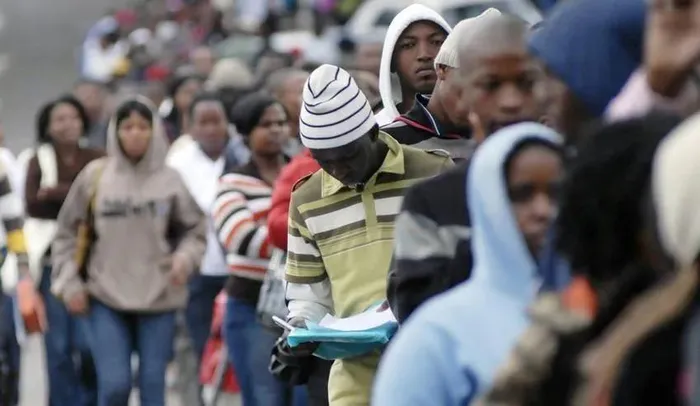
Young job seekers queue in the cold with CVs in hand — a familiar scene that reflects the harsh realities of youth unemployment in the Northern Cape.
Image: Reuters / File picture
By Mogomotsi Motshegwe
JUNE 16 is celebrated annually in South Africa to commemorate the youth of 1976, who fought and lost their lives demanding justice, freedom, and quality education from the apartheid regime. But nearly 50 years later, many of us are still fighting — not against apartheid, but against poverty, unemployment, exclusion, and the psychological burdens of being young and Black in a deeply unequal society.
What does June 16 mean to a new generation — born free, yet still grappling with the unfulfilled promises of democracy?
To mark Youth Day 2025, I spoke to young people from across the Northern Cape — students, graduates, job seekers, workers, and entrepreneurs — who shared their reflections on what June 16 means to them in today’s South Africa.

Keleleco Mokgothu
Image: Supplied
What does June 16 mean to you?
On June 16, politicians will deliver speeches in halls and stadiums, repeating familiar lines about how “young people are the future” and making grand promises to support youth-led businesses and employment initiatives. But inside those venues will be the same young faces, year after year, listening to the same rehearsed speeches. What does June 16 truly mean to them?
📣 Keleleco Mokgothu, 24, University of Johannesburg graduate
“It means a lot to me — as much as it is a never-ending protest. I do believe it has brought some change, and that we wouldn't be where we are today as a country if that protest had not taken place. We are now more conscious of our struggles and have a voice to speak on matters concerning us as the youth of today.”
📣 Oratile Berend, 24, education assistant
“June 16 reminds me that my voice matters. As a young Black woman working in a township school, I carry the hopes of a generation that still fights for dignity, education, and real change.”
📣 Aobakwe Motebe, 24, young professional and Master of Laws candidate
“June 16 reminds me that protest is a form of authorship. The youth of 1976 rejected the future that apartheid had written for them by refusing to accept an oppressive, unequal education system. As we look ahead to 2025, the challenges may have changed, but they are no less urgent. Today’s youth face high unemployment, limited access to quality education, and exclusion from meaningful opportunities. For me, June 16 is a call to act — to mentor, to vote, to challenge injustice, and to use every available tool — legal, digital, and social — to help shape a fairer democracy. It reminds me that youthfulness isn’t just about age; it’s an imaginative, disruptive force for change. The uprising was not the end, but the beginning. Our responsibility is to carry the torch forward — with courage, purpose, and vision.”
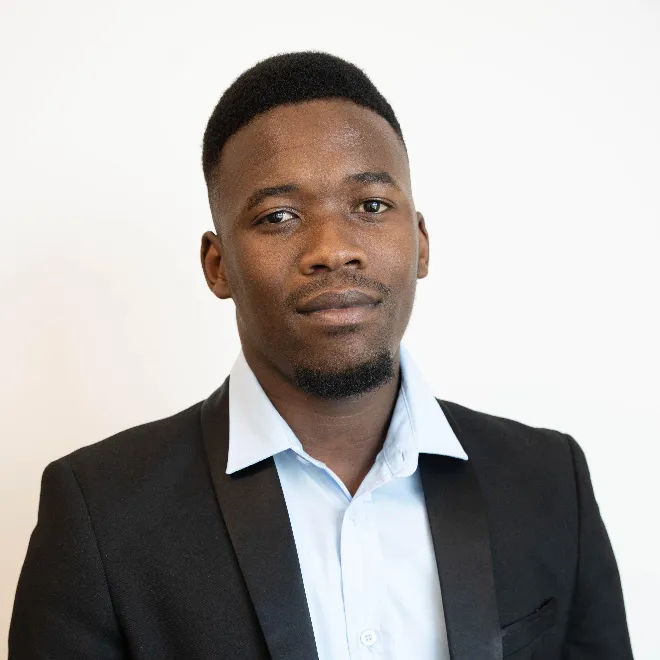
Aobakwe Motebe
Image: Supplied
Youth unemployment in context
According to the latest Stats SA report, South Africa’s youth unemployment rate stands at a staggering 46.1%. In the Northern Cape, there has been a recorded decline of 12,000 jobs, worsening an already fragile provincial economy. Young people aged 15–34 remain the most vulnerable group in the labour market. Many are trapped in a cycle of short-term learnerships — six-month stints with a stipend of around R2,000. These are celebrated as "employment opportunities," yet they offer no long-term job prospects or upward mobility.
It is dehumanising to see young people standing in long queues, submitting their CVs, hoping to be selected for a learnership — not because it offers a future, but because it’s the only available income. The constant hopping from one temporary learnership to another reflects not opportunity, but desperation.
This is not dignity. This is not development. Le rona re batho.
Have you or someone you know struggled to find work after studying? What was the experience like?
📣 Kedibone Jacobs, 23, student, Nelson Mandela University
“Many young people, including those I know personally, have faced the harsh reality of unemployment after completing their studies. One person I know, unable to find work or support locally, was forced to relocate to another province in search of opportunities. It is both sad and frustrating that, for many of us, leaving home seems to be the only path to a better future.”
📣 Bontle Barnard, 21, student, North-West University
“Yes, I know individuals who have struggled to secure employment after finishing their studies. They’ve had to accept part-time jobs outside their fields just to meet basic needs. This is largely because many employers demand experience — and it’s hard to gain experience when no one is willing to give you a chance to showcase your skills.”
What is the biggest challenge facing young people in your township right now?
📣 Keleleco Mokgothu, 24, University of Johannesburg graduate
“Unemployment will always be at the top of the list. Many have followed the path of acquiring an education and earning degrees, yet there is no sense of security that comes with it. Despite meeting the requirements or expectations, many still struggle to find employment.”

Bontle Barnard
Image: Supplied
The official slogan of the Northern Cape provincial government is “Modern, Growing, Successful Province.” While this sounds optimistic, to young people who are unemployed and living in poverty-stricken townships, it feels like a cruel joke.
Do you relate to the Northern Cape's official slogan: “Modern, Growing, Successful Province”?
📣 Mmalehlohonolo Manko, 23, young professional
“I do not. As many have said, the strength of the economy lies in its young people. The youth unemployment rate in the Northern Cape is still high, despite a slight decline, and there is a lack of meaningful support from the provincial government to assist young people in their career endeavours.”
📣 Keleleco Mokgothu, 24, University of Johannesburg graduate
“I do resonate with it, because I have witnessed the good that has been done for the province. We are not yet successful — but we are definitely growing.”
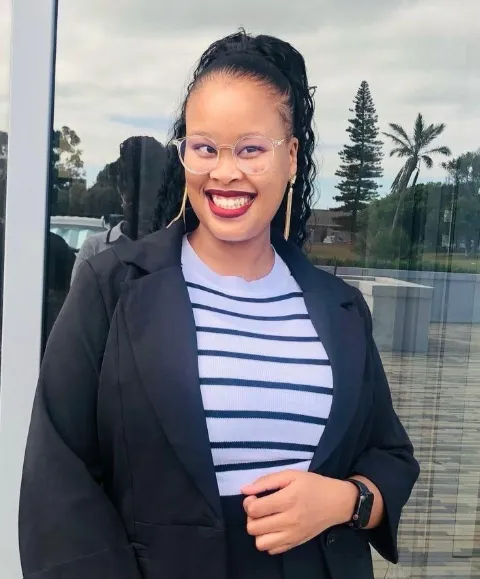
Kedibone Jacobs
Image: Supplied
What would a youth-friendly Northern Cape look like?
📣 Bontle Barnard, 21, student, North-West University
“A truly youth-friendly community in the Northern Cape would include spaces where young people can socialise, express themselves, and feel safe. It should also offer resources and services that support mental health and help us manage the challenges we face.”
📣 Kedibone Jacobs, 23, student, Nelson Mandela University
“A truly youth-friendly community would look very different from our current reality. We need accessible resources, writing centres, and recreational facilities where young people can develop skills, participate in enriching programmes, and spend their time constructively. Without such spaces, too many youths are left vulnerable to negative influences, including crime.”
📣 Letlhogonolo Leeuw, 26, young professional
“A youth-friendly province would prioritise connectivity and digital access by providing free, reliable Wi-Fi hotspots in townships, community centres, and schools. Most importantly, it would involve reimagining community spaces — not just constructing youth centres, but also offering learning opportunities, incubator support, and access to counselling services.”
In the 2024 national elections, voter turnout in the Northern Cape dropped from 67% in 2019 to 62%. This decline is not merely a sign of apathy — it reflects a deeper disillusionment. Young people are no longer buying into empty rhetoric. They are tired. They are angry. And they are growing increasingly impatient with a democracy that promised a better life for all.
Despite the decline, voting remains the single largest form of mass political participation in South Africa — a powerful indicator of how citizens feel about the state of democracy.
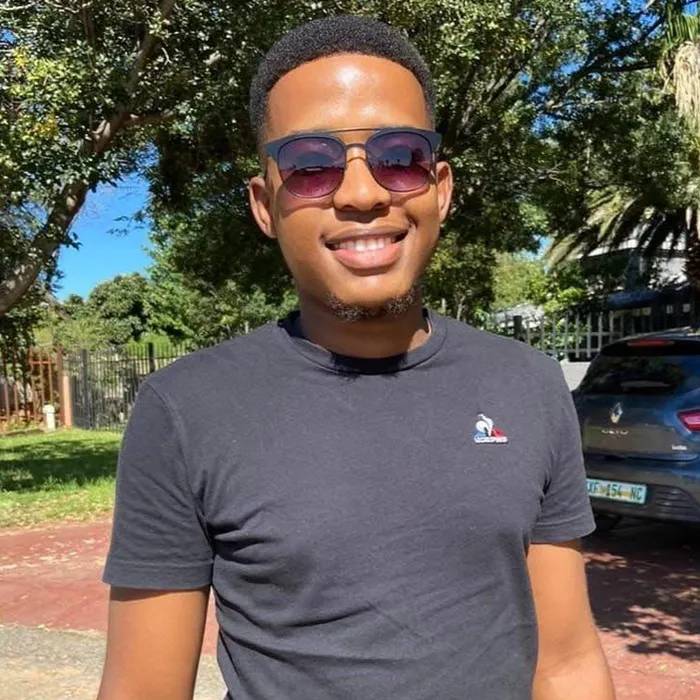
Letlhogonolo Leeuw
Image: Supplied
Do you believe that democracy is working for your generation?
📣 Mmalehlohonolo Manko, 23, young professional
“Yes and no. As an avid TikTok content consumer, I’ve seen how vocal my generation is about policies, laws, and openly expressing their views on the state of the country. But the reality on the ground tells a different story — we’re still struggling to get basic services like water. We still don’t have the power to influence laws or the national budget as ordinary South Africans. Isn’t that what democracy is meant to be about? Having a voice in your country? Being heard, not just seen?”
📣 Oratile Berend, 24, education assistant
“Yes, democracy is fairly working for me. Despite the high unemployment in my community, I still have the freedom to participate, to be heard, and to access opportunities — like being employed as an education assistant.”
📣 Letlhogonolo Leeuw, 26, young professional
“For me, it’s a nuanced view. In many ways, it feels like democracy is failing us — but the potential and the right to fix it still exist. It hasn’t yet delivered equal opportunities. Young people in the Northern Cape, especially those in rural areas, start from very different positions compared to those in urban centres. Our voices in remote areas often feel unheard.”
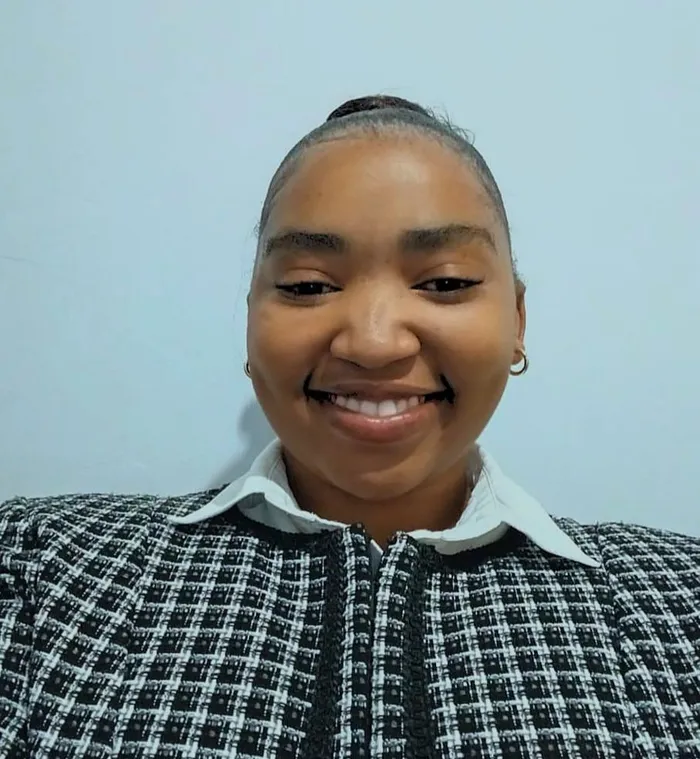
Mmalehlohonolo Manko
Image: Supplied
Le Rona Re Batho: We, Too, Are Human
These reflections remind us that while the context may have changed, the spirit of June 16 lives on in today’s youth. The battle is no longer against an oppressive regime, but against the systemic barriers that continue to marginalise young people in rural areas, townships, and informal settlements.
What becomes clear from these reflections is that the Northern Cape government is failing its youth — and those in power appear unmoved.
What we need is not charity. We are demanding dignity — and dignity comes from decent, secure, and meaningful work, not tokenistic job placements. We need a serious, well-funded provincial youth employment strategy, backed by measurable targets and unwavering political will.
But the problem runs deeper than just jobs. It’s also about where we live. Townships — a cruel legacy of apartheid spatial planning — were never designed to be centres of opportunity or places to thrive. They were built to control and contain the lives of people of colour. Decades into democracy, that reality remains largely unchanged.
Many young people in the Northern Cape live in poverty-stricken, underdeveloped townships. These areas lack parks, libraries, youth centres, computer labs — the very infrastructure that could support personal and professional development. Instead, we are left with nothing to do, nowhere to go, and no one who seems to care.
How can anyone be surprised when hopelessness sets in? What are young people supposed to do with all this time — and no opportunities?
Young people in the Northern Cape are bleeding. We wake up each day to the same crushing reality: unemployment, underdevelopment, and limited prospects. The repeated slogan that we are building a “modern, growing, and successful province” rings hollow when we are jobless, poor, and voiceless — confined to townships that break our spirits.
We do not want handouts. We do not want more slogans. We want to live in a province — and a country — that sees us, hears us, and values us. Le rona re batho. We, too, are human. We deserve dignity, opportunity, and a future we can believe in.
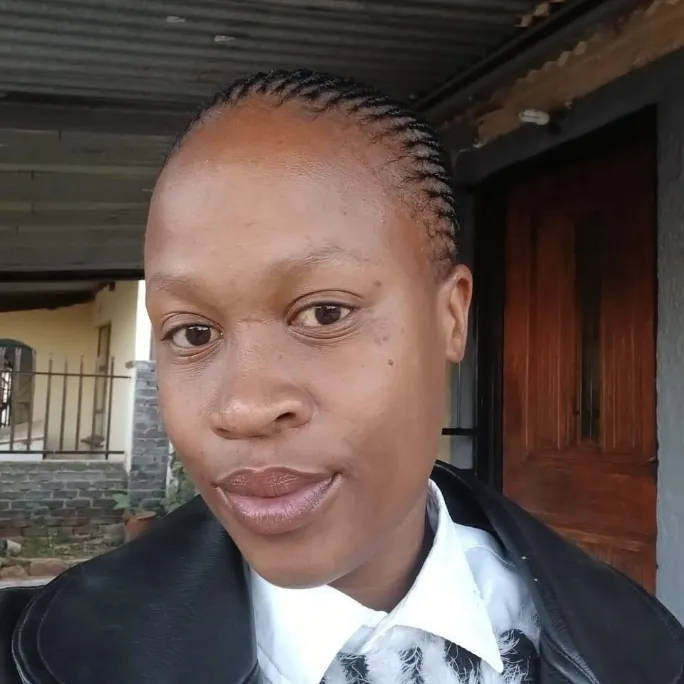
Oratile Berend
Image: Supplied
You are the leaders you’ve been waiting for
June 16 is not just about looking back — it is a demand to look forward with intention. It is a call to invest in young people, to listen to them, and to create space for their leadership in shaping South Africa’s future.
To all young people in the Northern Cape and beyond: your voice matters. Your struggle is valid. Your dreams are possible. And just like in 1976, you are the leaders you’ve been waiting for.
We want to live in a province — and a country — that sees us, hears us, and values us. Le rona re batho. We, too, are human. We deserve dignity, opportunity, and a future we can believe in.
As we commemorate Youth Day 2025, I encourage young people to take an interest and participate in politics. You might not be interested in politics — but politics is certainly interested in you. It shapes everything around you: who gets what, where, and when.
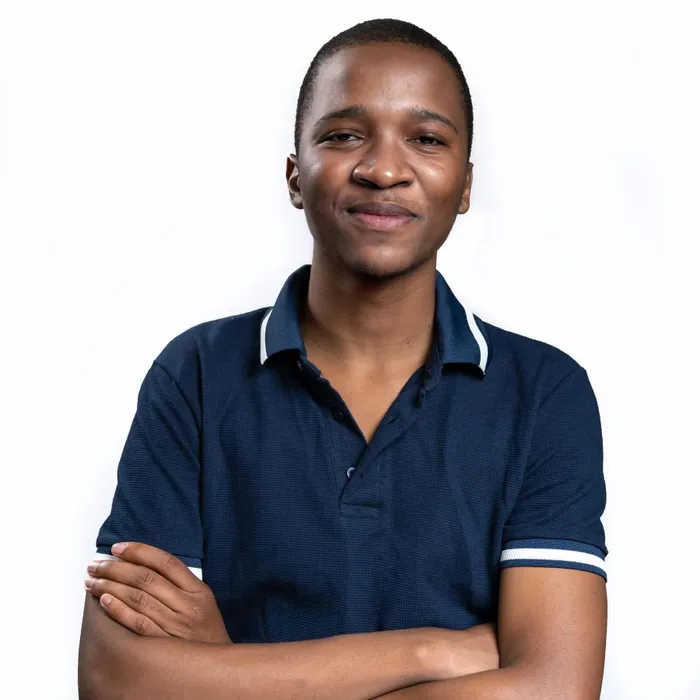
Mogomotsi Motshegwe
Image: Supplied
✍️ About the author: Mogomotsi Motshegwe is currently pursuing a Master’s degree in Political Science at the University of Pretoria. He is a Public Service Fellow at Futurelect and serves as a Youth Advisory Panellist for the United Nations Population Fund. He lectures in Political Science and International Relations and writes in his personal capacity.
* This article has been very lightly edited for clarity and to comply with the DFA’s style.
** The opinions expressed in this article are those of the author and do not necessarily reflect the views or policies of the DFA or its staff. While we strive to provide a platform for diverse perspectives, the content remains the sole responsibility of the contributor. Readers are encouraged to form their own opinions based on a range of information sources.
*** Do you have something on your mind? We’d love to hear from you! Share your thoughts, opinions, or experiences by submitting a Letter to the Editor. Your voice matters and could inspire or inform others in our community. Submit your letter via e-mail to info.dfa@acm.co.za and you could see your words featured in the DFA.

Have your say.
Image: Morgan Morgan / DFA
Related Topics: